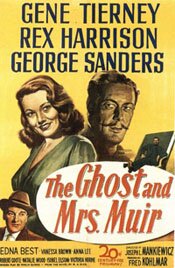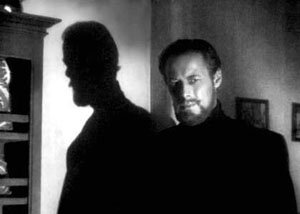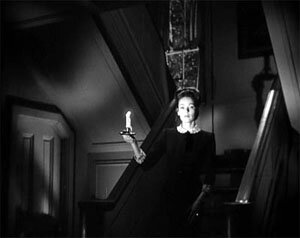As October wraps up, it seems appropriate to talk about a movie from 1999 that was a genuinely good, suspense-filled ghost story. It’s one that caught most people off guard, especially with its ending. And it was so quiet!
The Sixth Sense (1999)
Directed by M. Night Shaymalan
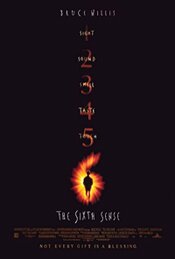 It’s undoubtedly due to the time of year that I find I’ve been recently watching films of a supernatural nature. Not long ago I wrote about The Ghost and Mrs. Muir (1947) and last week Ugetsu (1953). Those two movies tackled the subject of ghosts in very different ways. Last night I watched The Sixth Sense (1999), a movie that takes on the subject in a much more traditional way. It’s aspires to, and succeeds at, being a scary movie.
It’s undoubtedly due to the time of year that I find I’ve been recently watching films of a supernatural nature. Not long ago I wrote about The Ghost and Mrs. Muir (1947) and last week Ugetsu (1953). Those two movies tackled the subject of ghosts in very different ways. Last night I watched The Sixth Sense (1999), a movie that takes on the subject in a much more traditional way. It’s aspires to, and succeeds at, being a scary movie.
Most people I know have seen the movie but if you have not you should know that this entire review is likely to be a spoiler, so you’ve been warned. If you haven’t seen the film, I recommend reading nothing about it anywhere until you have.
I’ve probably seen The Sixth Sense three or four times now and each time I feel a sense of melancholy – except for that first time. I feel that way because, once seen, you can never see it as you did that first time. Once seen, it becomes a completely new movie. (See, You can’t watch the same movie twice.)
However, make no mistake. This is a movie that should be seen at least twice. In a sense, you get two movies for the price of one: the movie where you didn’t know the ending and the one where you do know how it ends. That difference is a big deal with this movie.
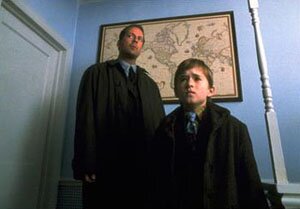 Haley Joel Osment plays Cole, a very troubled boy. Bruce Willis plays a child psychologist, Dr. Malcolm Crowe, who tries to help him. It isn’t until roughly the movie’s mid-point that we (and Dr. Crowe) discover the nature of Cole’s trouble: “I see dead people.”
Haley Joel Osment plays Cole, a very troubled boy. Bruce Willis plays a child psychologist, Dr. Malcolm Crowe, who tries to help him. It isn’t until roughly the movie’s mid-point that we (and Dr. Crowe) discover the nature of Cole’s trouble: “I see dead people.”
Yes, we’re in a ghost story. It’s one that ends with a big revelation for the audience (even more so for Dr. Crowe). All the tumblers fall into place then as we understand that what we’ve seen was not what we thought we were seeing.
Watching the movie again, you see how all the clues are there and most are remarkably simple, even obvious, and you wonder how you didn’t see them the first time. The answer is that writer/director M. Night Shyamalan understands how we watch movies, especially our expectations.
There is a scene in the movie where Dr. Crowe shows Cole a magic trick and it’s a nice analogy for how the movie works. His trick is no trick at all. The scene is about setting up a trick and how in setting it up we expect something. The trick (if you can call it that) is that what we expect doesn’t happen.
The movie also works because Shyamalan also understands that a scary movie is all about mood. You may notice how remarkably quiet the movie is. With the exception of a few short scenes, most of the movie is still, almost silent. When characters speak to one another it’s intimately, often whispered and hushed. Sound is used delicately and when it is loud it is usually brief and for punctuation, such as a scene where a quick, single chord is heard as a ghost passes by a door. Yes, we jump.
The performances are also very good and, because they are, help pull us into the movie’s mystery. Haley Joel Osment gives a performance you would expect from an old pro, complex and perfectly times, and Bruce Willis gives one of his best performances, understated and poignant in its restraint.
The Sixth Sense is one of those wonderfully entertaining spooky movies that understands atmosphere creates suspense and worry. Shock is a different kind of movie and that isn’t what this movie cares about. It cares about suspense and surprise.
And it delivers.
On Amazon:
- The Sixth Sense — Amazon.com (U.S.)
- The Sixth Sense — Amazon.ca (Canada)

